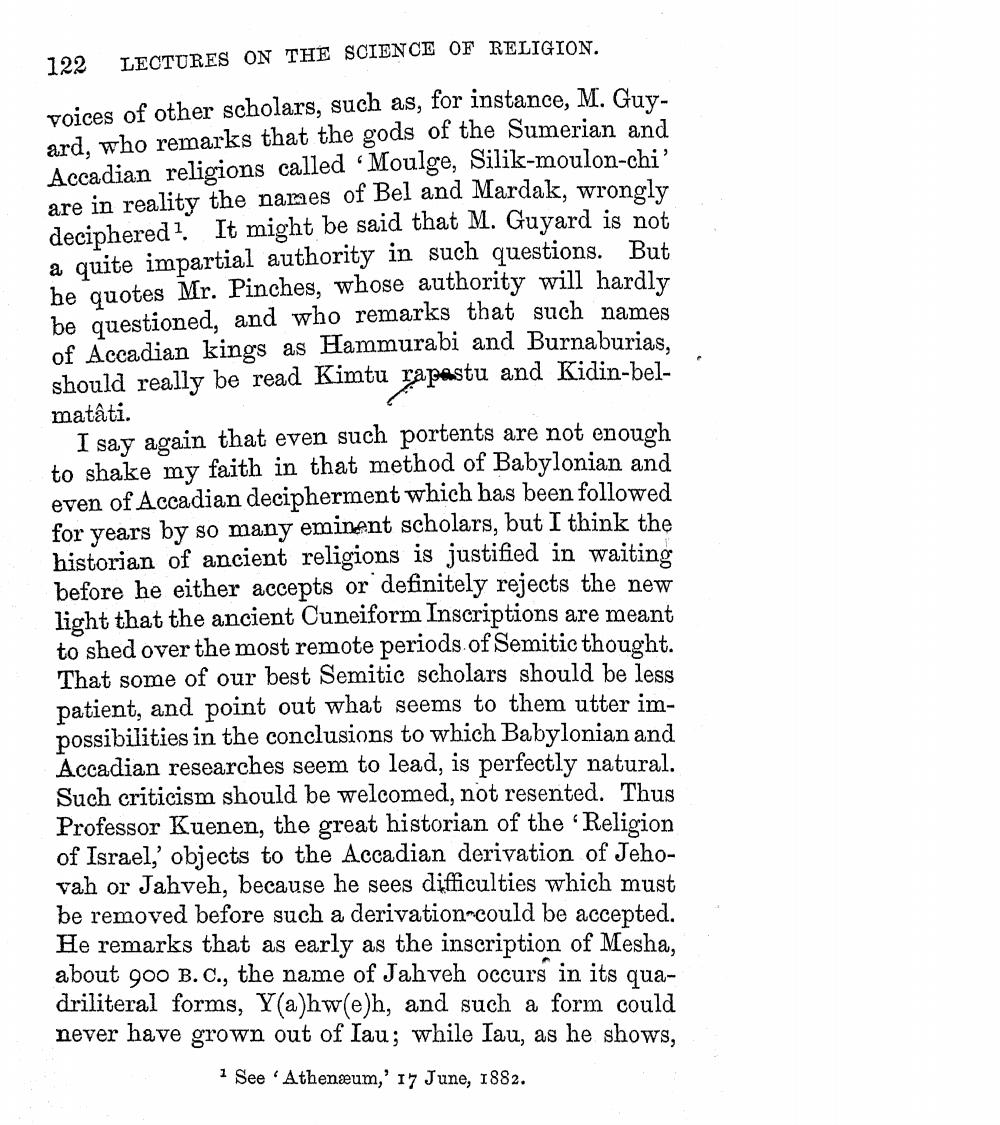________________
122 LECTURES ON THE SCIENCE OF RELIGION. voices of other scholars, such as, for instance, M. Guyard, who remarks that the gods of the Sumerian and Accadian religions called Moulge, Silik-moulon-chi? are in reality the names of Bel and Mardak, wrongly deciphered? It might be said that M. Guyard is not a quite impartial authority in such questions. But he quotes Mr. Pinches, whose authority will hardly be questioned, and who remarks that such names of Accadian kings as Hammurabi and Burnaburias. should really be read Kimtu rapastu and Kidin-belmatâti.
I say again that even such portents are not enough to shake my faith in that method of Babylonian and even of Accadian decipherment which has been followed for years by so many eminent scholars, but I think the historian of ancient religions is justified in waiting before he either accepts or definitely rejects the new light that the ancient Cuneiform Inscriptions are meant to shed over the most remote periods of Semitic thought. That some of our best Semitic scholars should be less patient, and point out what seems to them utter impossibilities in the conclusions to which Babylonian and Accadian researches seem to lead, is perfectly natural. Such criticism should be welcomed, not resented. Thus Professor Kuenen, the great historian of the 'Religion of Israel,' objects to the Accadian derivation of Jehovah or Jahveh, because he sees difficulties which must be removed before such a derivation could be accepted. He remarks that as early as the inscription of Mesha, about 900 B.C., the name of Jahveh occurs in its quadriliteral forms, Y(a)hw(e)h, and such a form could never have grown out of lau; while Iau, as he shows,
1 See Athenæum,' 17 June, 1882.




